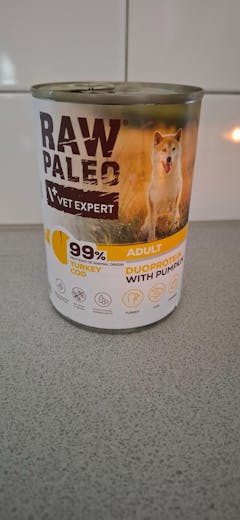Mage & Matsmältning
Mage & Matsmältning för Hund: Grunden för Hälsa och Välbefinnande
På ZooStar.se vet vi att en frisk mage och en välfungerande matsmältning är centrala för din hunds övergripande hälsa och livskvalitet. Hundens tarmflora, ofta kallad "andra hjärnan", spelar en avgörande roll för allt från näringsupptag och energi till immunförsvar och mental balans. När **hundens mage** inte mår bra, påverkar det snabbt hela kroppen. **Magproblem hos hundar** är tyvärr vanliga och kan visa sig som diarré, förstoppning, kräkningar, uppblåsthet eller bristande aptit. Dessa symtom är inte bara obehagliga för din hund, utan kan också vara tecken på underliggande problem som kräver uppmärksamhet.
I denna omfattande guide kommer vi att fördjupa oss i **mage & matsmältning för hund**. Vi kommer att utforska hur hundens matsmältningssystem fungerar, vanliga orsaker till **magproblem hund**, samt presentera Zoostars noga utvalda sortiment av produkter för att stödja en hälsosam **tarmflora hund**. Från **probiotika hund** och **prebiotika hund** till matsmältningsenzymer och specialfoder – vi guidar dig till de bästa lösningarna för att din hund ska må bra, från insidan och ut.
Förstå Hundens Matsmältningssystem
Hundens matsmältningssystem är ett komplext nätverk som ansvarar för att bryta ner mat, absorbera näringsämnen och eliminera avfall. En optimal funktion är grundläggande för att hunden ska kunna tillgodogöra sig sin mat och bibehålla sin vitalitet.
Processen börjar i munnen, där maten tuggas och blandas med saliv. Sedan färdas den ner till magsäcken där matsmältningsenzymer och magsyra påbörjar nedbrytningen. Den huvudsakliga absorptionen av näringsämnen sker dock i tunntarmen, där enzymer från bukspottkörteln och galla från levern hjälper till med nedbrytningen av fett, protein och kolhydrater. I tjocktarmen avslutas processen, och här spelar **tarmfloran** en avgörande roll för att fermentera fibrer, producera vissa vitaminer och skydda mot skadliga bakterier. Vatten absorberas, och avföring bildas och elimineras.
En balanserad **tarmflora hund** (mikrobiomet) är avgörande. Den består av miljarder goda bakterier som samverkar för att upprätthålla tarmhälsa, stärka immunförsvaret och till och med påverka hundens humör och beteende. När denna balans störs, kan det leda till en rad **magproblem hund**.
Vanliga Orsaker till Magproblem hos Hundar
Nästan alla hundar upplever **magproblem** någon gång i livet. Orsakerna kan vara många och variera i allvarlighetsgrad.
- Foderbyten: Plötsliga förändringar i kosten är en vanlig orsak till diarré och orolig mage. Introducera alltid nytt foder gradvis över 7-10 dagar.
- Foderintolerans/allergier: Vissa hundar är känsliga mot specifika ingredienser (t.ex. kyckling, spannmål, laktos) vilket kan leda till kroniska **magproblem**.
- Stress och oro: Precis som hos människor kan stress och oro påverka **hundens mage** och leda till lös avföring eller kräkningar. Detta kan vara vid flytt, resor, separation, eller förändringar i rutiner.
- Parasiter: Invändiga parasiter som mask och giardia kan orsaka ihållande diarré och viktminskning. Regelbunden avmaskning är viktig.
- Bakteriella/virala infektioner: Infektioner som campylobacter, salmonella eller parvovirus kan ge akut diarré och kräkningar.
- Främmande föremål: Om hunden ätit något olämpligt (leksaker, benbitar, stenar) kan det orsaka blockeringar eller irritation i matsmältningssystemet.
- Pankreatit (bukspottkörtelinflammation): En inflammation i bukspottkörteln som leder till kräkningar, diarré, aptitlöshet och smärta.
- IBD (Inflammatory Bowel Disease): En kronisk inflammation i tarmen som ger återkommande **magproblem**.
- Förgiftning: Intag av giftiga växter, matrester eller kemikalier kan orsaka akut och allvarlig mag-tarmstörning.
- Antibiotikabehandling: Antibiotika kan störa **tarmfloran** genom att döda både onda och goda bakterier, vilket ofta leder till diarré. Här är **probiotika hund** extra viktigt.
Vid ihållande eller allvarliga **magproblem** är det alltid viktigt att kontakta veterinär för korrekt diagnos och behandling. Självmedicinering kan förvärra situationen.
Produkter för Mage & Matsmältning på Zoostar.se
På Zoostar.se har vi ett brett utbud av produkter speciellt framtagna för att stödja **hundens mage** och matsmältningsfunktion. Vårt sortiment syftar till att förebygga problem, lindra symtom och återställa balansen i tarmen.
1. Probiotika för Hund: Stärk Tarmfloran
**Probiotika för hund** är levande, goda bakterier som hjälper till att återställa och bibehålla en balanserad **tarmflora**. De är ovärderliga vid:
- Diarré: Oavsett orsak (stress, foderbyte, antibiotika) kan probiotika hjälpa till att stabilisera avföringen.
- Antibiotikabehandling: Viktigt att ge under och efter en antibiotikakur för att minimera störningar i tarmfloran.
- Stressiga situationer: Inför resor, utställningar eller andra stressiga händelser kan probiotika lugna magen.
- Känslig mage: För hundar med kroniskt känslig mage kan dagligt tillskott av probiotika ge långsiktig stabilitet.
- Återhämtning efter sjukdom: Stödjer magen under återhämtning från olika sjukdomar.
**Probiotika hund** finns i pulverform att strö över maten, som tuggtabletter eller i pastaform.
2. Prebiotika för Hund: Mat åt de Goda Bakterierna
**Prebiotika för hund** är icke-smältbara fibrer som fungerar som "mat" för de goda bakterierna i tarmen. De stimulerar tillväxten av en hälsosam **tarmflora** och kan förbättra näringsupptaget. Prebiotika och probiotika kombineras ofta i synbiotiska produkter för maximal effekt.
- Främjar tillväxt av goda bakterier: Skapar en gynnsam miljö för probiotika.
- Förbättrar avföringskonsistens: Kan hjälpa både vid diarré och förstoppning.
- Stärker immunförsvaret: En frisk tarm är grunden för ett starkt immunförsvar.
Vanliga prebiotiska fibrer inkluderar FOS (fruktooligosackarider) och MOS (mannanoligosackarider).
3. Matsmältningsenzymer för Hund: Förbättrat Näringsupptag
**Matsmältningsenzymer för hund** hjälper till att bryta ner fett, protein och kolhydrater i maten, vilket underlättar upptaget av näringsämnen. De är särskilt användbara för hundar med exokrin pankreasinsufficiens (EPI), äldre hundar eller hundar med känslig matsmältning.
- Förbättrar absorption: Hundar som har svårt att ta upp näring från sin mat kan dra nytta av extra enzymer.
- Minskar gaser och uppblåsthet: Genom att maten bryts ner mer effektivt kan symtom som gaser minska.
Enzymer som amylas, lipas och proteas är vanliga i dessa tillskott.
4. Fiberrik Kost & Speciella Foder: Stöd för Känsliga Magar
För hundar med återkommande **magproblem** kan en anpassad diet göra stor skillnad.
- Lättsmält foder: Foder med lättsmälta proteiner och kolhydrater minskar belastningen på matsmältningssystemet.
- Hypoallergent foder: För hundar med foderallergier eller intoleranser är hypoallergent eller hydrolyserat foder avgörande för att undvika reaktioner.
- Fiberrikt foder: För hundar med tendens till förstoppning eller lös avföring kan ett foder med anpassad fiberhalt hjälpa till att reglera tarmfunktionen. Psylliumfrön är en vanlig fiberkälla för hundar.
Kontakta alltid veterinär vid val av medicinskt foder.
5. Tillskott för att Lugna Magen: Vid Akuta Besvär
Vid akut diarré eller kräkningar finns det produkter som kan hjälpa till att binda toxiner och lugna **hundens mage**.
- Kol- och lermineralprodukter: Aktiverat kol och lermineraler som bentonit eller kaolin kan binda vätska och toxiner i tarmen.
- Elektrolyter: Vid diarré förlorar hunden viktiga elektrolyter. Tillskott hjälper till att återställa vätskebalansen.
Dessa produkter är för kortvarigt bruk och ersätter inte veterinärvård vid allvarliga symtom.
Mage & Matsmältning som en Del av Hundens Övergripande Hälsa på Zoostar.se
Kategorin **Mage & Matsmältning** är en av de mest fundamentala delarna i ZooStars helhetssyn på din hunds välbefinnande. Vi förstår att varje aspekt av hundens hälsa är sammanlänkad. Därför har vi byggt upp vårt sortiment för att komplettera varandra och bidra till en balanserad och frisk hund.
- Hundprodukter: Den övergripande samlingen där matsmältningsprodukter utgör en viktig del av hundens dagliga behov.
- Hundens Apotek: Här hittar du alla hälsorelaterade produkter, där en välmående mage är en av de absolut viktigaste grundpelarna för att förebygga en mängd andra problem.
- Kosttillskott & Hälsa: Vår bredaste kategori för tillskott, där **probiotika hund** och matsmältningsenzymer är centrala. Många tillskott för allmän hälsa (som multivitaminer) absorberas bättre av en hund med effektiv matsmältning.
- Kosttillskott för Hundar: En underkategori som specifikt riktar sig till hundar, och där mage- och matsmältningstillskott är en betydande del.
- Hud & Päls: Obalans i **hundens mage** och matsmältning visar sig ofta på huden och i pälsen genom klåda, torrhet, matt päls eller dålig lukt. En frisk tarmflora är avgörande för en frisk hud.
- Lugnande till Hund: Stress och oro kan direkt påverka **hundens mage**. Genom att minska stress kan du indirekt förbättra matsmältningen. Vissa lugnande tillskott kan också ha en lugnande effekt på nervsystemet som påverkar tarmen.
- Rörelseapparaten: Även om kopplingen inte är direkt, kan en hund som mår dåligt i magen vara mindre aktiv och därmed påverka ledhälsa och rörlighet negativt. Optimalt näringsupptag från maten är också viktigt för ledvävnader.
- Immunförsvar & Allmänt Stöd: Cirka 70-80% av hundens immunförsvar sitter i tarmen. Genom att stärka **tarmfloran** via probiotika och prebiotika, stärker du direkt hundens immunförsvar och dess förmåga att stå emot sjukdomar.
- Vård & Skydd: Produkter för allmän vård kan behövas för att hantera sekundära problem som uppstår från magproblem (t.ex. hudirritationer).
- Parasitskydd & Insektsskydd: Invärtes parasiter kan orsaka stora magproblem. Regelbundet parasitskydd är avgörande för att förebygga detta.
- Munvård: En frisk mun är det första steget i matsmältningsprocessen. Problem i munnen kan påverka tuggningsförmågan och därmed matsmältningen.
- Hundvård & Hygien: Allmän hygien och pälsvård bidrar till en sund hund som i sin tur kan minska stress och ge en ökad aptit.
Genom att aktivt arbeta med alla dessa områden – från en balanserad kost och rätt tillskott för **mage & matsmältning** till stresshantering och regelbunden vård – ger du din hund de bästa förutsättningarna för ett långt, friskt och lyckligt liv. Utforska Zoostars breda sortiment idag och känn dig trygg i att du har allt du behöver för din bästa väns hälsa!
Vanliga Frågor om Mage & Matsmältning för Hund (FAQ)
Vad är den vanligaste orsaken till att min hund får diarré?
Den vanligaste orsaken till diarré hos hundar är en plötslig förändring i kosten, intag av olämplig mat (t.ex. från sopor, människomat) eller stress. Det kan också bero på milda virus- eller bakterieinfektioner. Vid akut, mild diarré kan vila och små portioner lättsmält mat (t.ex. kokt ris och kokt kyckling) samt **probiotika hund** ofta hjälpa. Om diarrén är ihållande, innehåller blod, eller om hunden är slö och kräks, kontakta alltid veterinär.
Kan jag ge min hund probiotika varje dag?
Ja, att ge din hund **probiotika** dagligen kan vara mycket fördelaktigt, särskilt för hundar med känslig mage, kroniska magproblem eller de som ofta utsätts för stress. Dagligt tillskott hjälper till att upprätthålla en stabil och balanserad **tarmflora**, vilket i sin tur stärker immunförsvaret och förbättrar näringsupptaget. Följ alltid doseringsrekommendationerna på produkten.
Min hund har problem med gaser och uppblåsthet, vad kan jag göra?
Gaser och uppblåsthet kan bero på att hunden äter för snabbt, foderintolerans, eller en obalans i **tarmfloran**. Försök med en långsammare matskål, mindre men fler måltider, eller byt till ett lättsmält foder. Tillskott med **matsmältningsenzymer för hund** eller **probiotika hund** kan också hjälpa till att bryta ner maten mer effektivt och balansera tarmen. Om problemet är ihållande och förknippat med smärta eller nedsatt allmäntillstånd, kontakta veterinär.
Vad är skillnaden mellan probiotika och prebiotika?
**Probiotika för hund** är levande, goda bakterier som tillförs tarmen för att kolonisera den och bidra till en hälsosam **tarmflora**. **Prebiotika för hund** är däremot icke-smältbara fibrer som fungerar som näring för de befintliga goda bakterierna i tarmen. Prebiotika stimulerar alltså tillväxten och aktiviteten hos de nyttiga mikroorganismerna. Många produkter innehåller både probiotika och prebiotika (synbiotika) för en synergistisk effekt.
När ska jag kontakta veterinär vid magproblem?
Du bör omedelbart kontakta veterinär om din hund uppvisar:
- Kraftiga och ihållande kräkningar eller diarré, särskilt om det är blodigt.
- Tecken på uttorkning (insjunkna ögon, torr nos, slöhet).
- Svåra buksmärtor (hundens mage är spänd, den krummar ryggen, är orolig).
- Feber eller kraftigt nedsatt allmäntillstånd.
- Upprepad men ineffektiv kräkning (kan vara tecken på magomvridning – akut livshotande).
- Misstanke om intag av giftigt ämne eller främmande föremål.
Kan kosten påverka hundens päls och hud om magen är dålig?
Absolut! **Hud & Päls** hälsa är starkt kopplad till **mage & matsmältning**. Om hundens matsmältningssystem inte fungerar optimalt, kan näringsämnen som är avgörande för en frisk hud och glänsande päls (som fettsyror, vitaminer och mineraler) inte absorberas effektivt. Detta kan leda till torr, matt päls, håravfall, klåda, mjäll och olika hudproblem. Att optimera matsmältningen med rätt foder och tillskott är ofta en nyckel till att förbättra hud- och pälskvaliteten.
Vilken typ av foder passar en hund med känslig mage?
För hundar med känslig mage rekommenderas ofta foder som är:
- Lättsmälta: Med högkvalitativa proteiner (t.ex. hydrolyserat protein, lamm, fisk) och kolhydrater (t.ex. ris, potatis) som är skonsamma för matsmältningssystemet.
- Måttligt fiberinnehåll: Vissa fibrer kan vara bra, men för mycket eller fel typ av fiber kan irritera en känslig mage.
- Berikade med probiotika och prebiotika: För att stödja en hälsosam **tarmflora**.
- Fri från vanliga allergener: Om hunden har en foderintolerans kan det behövas ett spannmålsfritt foder eller ett foder med en "ny" proteinkälla.
Husdjursprodukter Online
Utforska fler populära hundkategorier
Här hittar du många av våra mest efterfrågade kategorier – från hundfoder och godis till tillbehör, vård och aktivering.
Ledande Fodertillverkare
Populära hundfodermärken
Här hittar du våra mest populära hundfoder – från spannmålsfritt till veterinärfoder. Klicka på ett varumärke för att se hela sortimentet.






